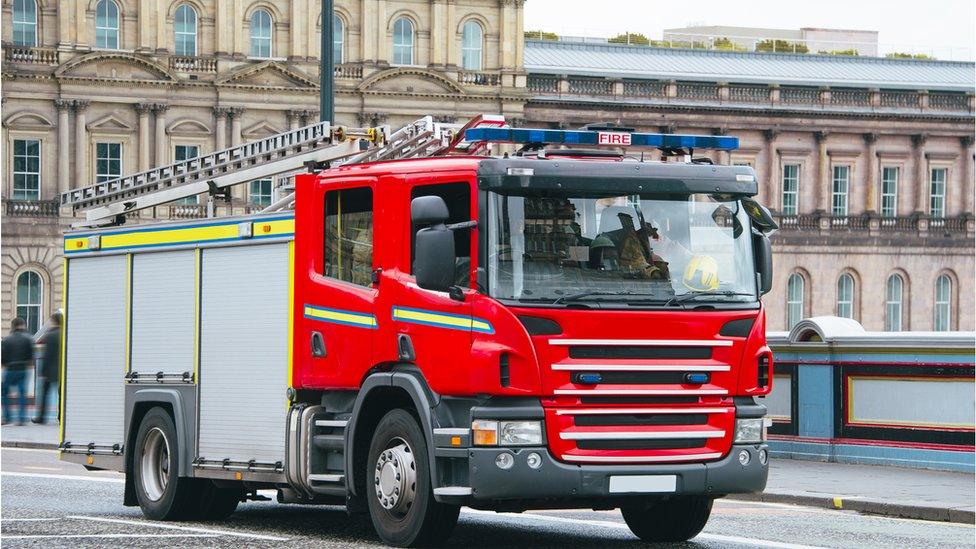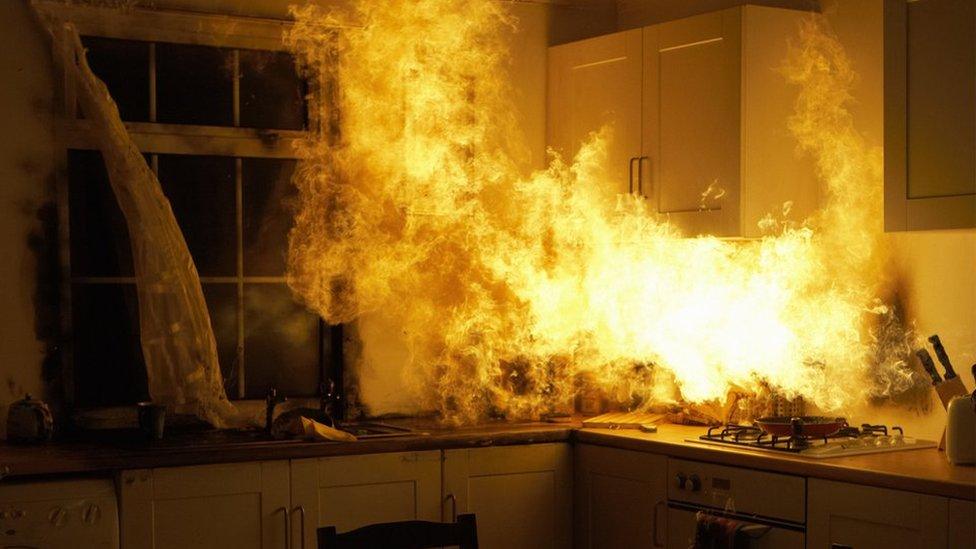Firefighters will no longer attend all automatic alarms
- Published

The changes are expected to substantially reduce unnecessary callouts
Firefighters will no longer travel to investigate all automatic alarms in a bid to cut the number of unnecessary callouts.
The Scottish Fire and Rescue Service says crews are routinely mobilised to more than 28,000 false alarms a year.
From April next year, it will establish if automated alarms in workplaces have been triggered by an actual fire before sending an appliance.
Hospitals, care homes and "sleeping risk" premises will be exempt.
Fire engines will still be mobilised to any fire alarm activations within these properties.
The change, which follows a consultation, will bring Scotland into line with most other UK fire and rescue services.
Stuart Stevens, Scottish Fire and Rescue Service (SFRS) assistant chief officer, said: "False alarms account for almost one third of fire and rescue activity across Scotland. They place a drain on front line services, increase risk to road users and cause interruption to the business sector and communities."
He said there were clear advantages of calling workplaces first.
Blue-light journeys
It is estimated the change will reduce attendance rates by up to 57% and free up more than 37,000 hours each year, providing more time for training, community safety and fire prevention activity.
"These unnecessary blue-light journeys bring risks to our crews, other road users and pedestrians as well as impacting the environment with an estimated 575 tonnes of carbon emissions produced - the equivalent of heating 230 homes a year," he added.
"Businesses will also experience less disruption as they no longer need to wait for us to attend to give the all-clear after a false alarm."
An SFRS board paper estimates that the change will also save the service more than £700,000 a year.
Related topics
- Published12 December 2021

- Published1 February 2022
